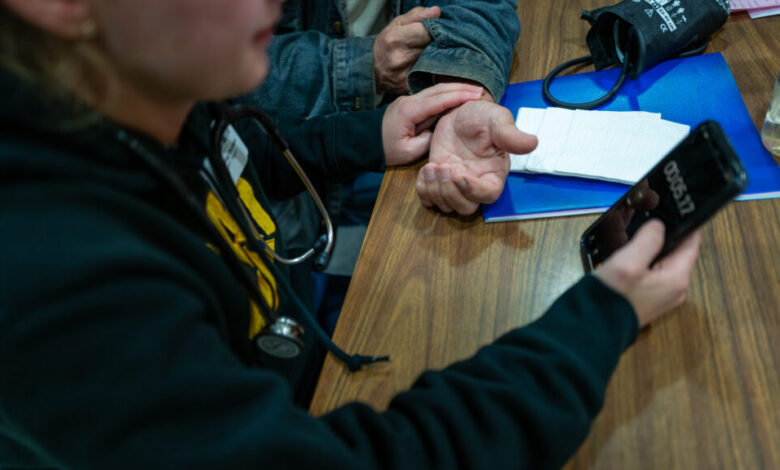Large study of chronic disease in rural areas faces loss of funding

The sudden cancellation of the RURAL Cohort Study, a groundbreaking research project led by cardiologist Vasan Ramachandran, has left the medical community and the rural communities it serves in shock. The study, which aimed to understand the underlying risks of cardiovascular and chronic diseases in rural areas across four Southern states, was on the brink of reaching its recruitment goal of 3,300 participants when it received a formal email notifying them of the termination of federal funding.
Unlike traditional studies where participants visit a research facility, the RURAL Cohort Study brought the research team directly to the people in remote areas through a mobile examination unit equipped with advanced medical technology. This unique approach was crucial in gaining the trust of residents in these underserved communities and ensuring their participation in the study.
The cancellation of the RURAL Cohort Study is part of a larger trend of uncertainty in biomedical research funding, with the National Institutes of Health (NIH) facing pressure to cut 35% in contract spending. This directive, issued by the federal government’s cost-cutting task force known as the U.S. DOGE Service, has put many other research programs at risk of losing their funding.
One such program is the Women’s Health Initiative, which recently faced a similar funding crisis before receiving a reprieve. The Jackson Heart Study, the largest investigation into cardiovascular disease in African Americans, is also facing uncertainty about its future funding.
The sudden and arbitrary nature of these funding cuts has left researchers like Ramachandran and Donald Lloyd-Jones, principal investigator of the Framingham Heart Study, on edge. While the Framingham study managed to secure funding after a period of uncertainty, Lloyd-Jones emphasized the heroic efforts of NIH employees who worked tirelessly to ensure the survival of the project.
As researchers and communities grapple with the fallout of these funding cuts, the future of vital research programs hangs in the balance. The loss of studies like the RURAL Cohort Study represents a setback in the fight against chronic diseases and underscores the importance of stable funding for biomedical research. The scientific community is left hoping for a reprieve and a renewed commitment to supporting crucial research initiatives that can improve the health and well-being of all Americans. The team behind the Women’s Health Initiative had seen great success in their first year and a half of funding. They focused on community listening projects, taking the time to understand the people and partnering with them to build engagement. This approach had proven to be effective in gathering valuable insights and creating a strong connection with the participants.
However, their progress faced a significant setback in November of last year. The study team had submitted a comprehensive application to extend the study’s original grant, only to find out that the requirements had shifted at the National Heart, Lung, and Blood Institute. The application was moved to a different pool with different criteria, and the contract now had an upper limit of $50 million. A scheduled review was canceled due to NIH’s mandate to reduce costs, leaving the team in a challenging position.
Dr. Ramachandran, a key member of the study team, expressed his concerns about the situation. He mentioned that they had already prepared a response to the changes but now had to start from scratch with a new grant application. The uncertainty surrounding the funding was putting a strain on the team, as they awaited news on whether the cost extension would come through.
The potential extension would allow the study to continue until April 2026, giving hope to the scientists who were eagerly anticipating the renewal of the contract. Dr. Ramachandran applauded the Women’s Health Initiative for their efforts, emphasizing the importance of the study for the participants, especially those who are economically challenged. He highlighted the significance of engaging with rural communities and giving them a voice in scientific research.
The team’s work goes beyond just conducting research; it is about empowering marginalized communities and including them in the scientific process. Dr. Ramachandran shared that the response from rural counties had been overwhelming, with many residents feeling honored to be part of a study that focused on them.
Despite the challenges they faced, the team remained committed to their mission. They understood the impact their work could have on the lives of the participants and were determined to overcome any obstacles in their way. The support from organizations like Bloomberg Philanthropies was crucial in enabling them to continue their important work.
In conclusion, the Women’s Health Initiative’s journey is a testament to the resilience and dedication of the team members. Their commitment to community engagement and inclusivity sets a powerful example for future research projects. As they navigate the uncertainties of funding and grants, their focus remains on the people they serve, ensuring that their voices are heard and their contributions are valued.





